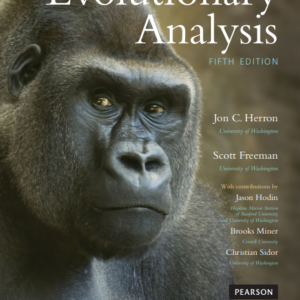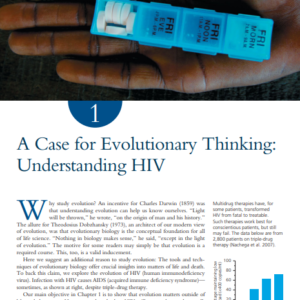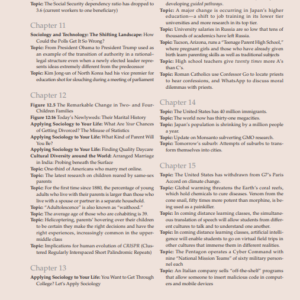Lehninger Principles of Biochemistry 8th Edition PDF
Original price was: $24.99.$14.99Current price is: $14.99.
Description
Lehninger Principles of Biochemistry 8th Edition PDF
Publisher : W.H. Freeman; 8th edition (January 1, 2021)
Language : English
ISBN-10 : 1319228003
ISBN-13 : 978-1319228002
Lehninger’s Principles of Biochemistry earned acclaim for its presentation and organization of complex concepts and connections, anchored in the principles of biochemistry. This legacy continues in the eighth edition with a new framework that highlights the principles and supports student learning.
Table of Contents
Preface viii
1. The Foundations of Biochemistry
I STRUCTURE AND CATALYSIS
2. Water, the Solvent of Life
3. Amino Acids, Peptides, and Proteins
4. The Three-Dimensional Structure of Proteins
5. Protein Function
6. Enzymes
7. Carbohydrates and Glycobiology
8. Nucleotides and Nucleic Acids
9. DNA-Based Information Technologies
10. Lipids
11. Biological Membranes and Transport
12. Biochemical Signaling
II BIOENERGETICS AND METABOLISM
13. Introduction to Metabolism
14. Glycolysis, Gluconeogenesis, and the Pentose Phosphate Pathway
15. The Metabolism of Glycogen in Animals
16. The Citric Acid Cycle
17. Fatty Acid Catabolism
18. Amino Acid Oxidation and the Production of Urea
19. Oxidative Phosphorylation
20. Photosynthesis and Carbohydrate Synthesis in Plants
21. Lipid Biosynthesis
22. Biosynthesis of Amino Acids, Nucleotides, and Related Molecules
23. Hormonal Regulation and Integration of Mammalian Metabolism
III INFORMATION PATHWAYS
24. Genes and Chromosomes
25. DNA Metabolism
26. RNA Metabolism
27. Protein Metabolism
28. Regulation of Gene Expression
Abbreviated Solutions to Problems
Glossary.
Authors:
David L. Nelson, born in Fairmont, Minnesota, received his BS inchemistry and biology from St. Olaf College in 1964, and earned his PhD inbiochemistry at Stanford Medical School, under Arthur Kornberg. He was apostdoctoral fellow at the Harvard Medical School with Eugene P. Kennedy,who was one of Albert Lehninger’s first graduate students. Nelson joinedthe faculty of the University of Wisconsin–Madison in 1971 and became afull professor of biochemistry in 1982. For eight years he was Director ofthe Center for Biology Education at the University of Wisconsin–Madison. Hebecame Professor Emeritus in 2013. Nelson’s research focused on the signaltransductions that regulate ciliary motion and exocytosis in the protozoanParamecium. For 43 years he taught (with Mike Cox) an intensive survey ofbiochemistry for advanced biochemistry undergraduates in the life sciences.He has also taught graduate courses on membrane structure and function, aswell as on molecular neurobiology. He has received awards for hisoutstanding teaching, including the Dreyfus Teacher–Scholar Award and theAtwood Distinguished Professorship. In 1991–1992 he was a visitingprofessor of chemistry and biology at Spelman College. Nelson’s second loveis history, and in his dotage he teaches the history of biochemistry andcollects antique scientific instruments.
Michael M. Cox was born in Wilmington, Delaware. In his firstbiochemistry course, the first edition of Lehninger’s Biochemistry was amajor influence in refocusing his fascination with biology and inspiringhim to pursue a career in biochemistry. After graduate work at BrandeisUniversity with William P. Jencks and postdoctoral work at Stanford with I.Robert Lehman, he moved to the University of Wisconsin–Madison in 1983. Hebecame a full professor of Biochemistry in 1992. Mike Cox has coordinatedan active research team at Wisconsin investigating the function andmechanism of enzymes that act at the interface of DNA replication, repair, and recombination. That work has resulted in over 200 publications to date.For more than three decades, Cox has taught introductory biochemistry toundergraduates and has lectured in a variety of graduate courses. Heorganized a course on professional responsibility for first-year graduatestudents and established a systematic program to draw talented biochemistryundergraduates into the laboratory at an early stage of their collegecareer. He has received multiple awards for both his teaching and hisresearch, including the Eli Lilly Award in Biological Chemistry, electionas a AAAS fellow, and the UW Regents Teaching Excellence Award. Cox’shobbies include turning 18 acres of Wisconsin farmland into an arboretum,wine collecting, and assisting in the design of laboratory buildings.











Reviews
There are no reviews yet.